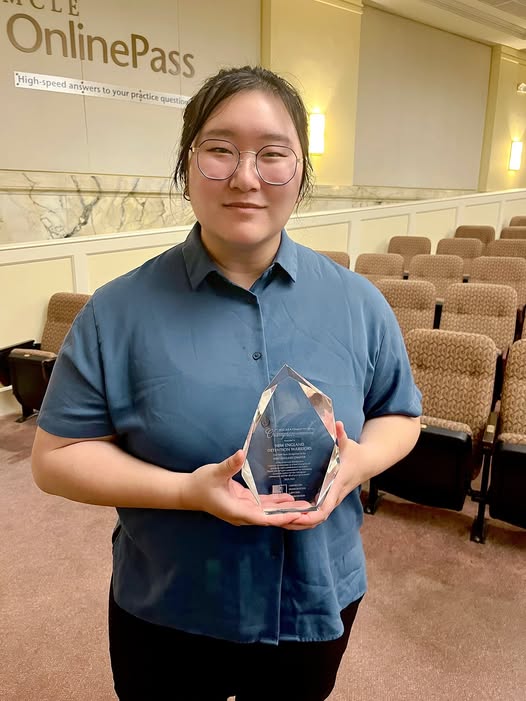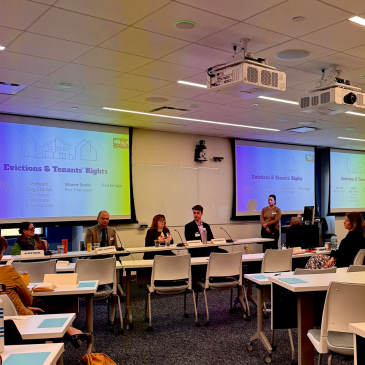Days at Maine Law’s Refugee and Human Rights Clinic (RHRC) look a little bit different since January.
U.S. Immigration and Customs Enforcement (ICE) has recently ramped up activity across the country, and Maine is no exception to this nationwide trend.
In addition to handling its regular case load, the RHRC launched in January 2025 a new detention project where they are conducting one-time consultations with individuals detained in Maine by ICE. This work recently garnered an award through the New England chapter of the American Immigration Lawyers Association.
This new detention project involves meeting with immigrants in ICE custody in Maine either in person or virtually, referring them to services or attorneys that can further assist them, and providing them with legal information and resources.
“This is a triage situation,” said Bri Zhuang, Teaching Fellow and Staff Attorney. Zhuang is one of the lead attorneys in the RHRC spearheading the rapid response team assisting immigrants in detention. “For the most part, we are only able to meet with each individual once, so it’s important we give them as much information as possible. We have to be well-organized and nimble, which has been a good experience for our student attorneys.”

The Refugee and Human Rights Clinic has quickly assembled resources to share with immigrants in ICE custody and their families, including a detention preparedness booklet in English and Spanish and additional Know Your Rights information in English, Spanish, Portuguese, and French.
To date, the RHRC faculty and their students have met with nearly 200 immigrants held by ICE in Cumberland County Jail in Portland and Two Bridges Regional Jail in Wiscasset. The experiences of arrest and detention have terrorized the individuals involved and the Maine immigrant community at large.
One story that stands out to Zhuang is that of “Alice,” a mother of two who endured over a year and a half of physical and mental abuse by her partner. She never called the police for help, afraid of the potential ramifications for her immigration status. Her partner knew she was afraid, weaponized it against her, threatening to report her to immigration if she ever tried to call the cops on him. Then, one night, when she was trying to defend herself from his abuse, he called the police and told them that she had scratched him. Alice spent one night in jail, and the next morning, ICE was there to detain her. She has now been separated from her teenage son for three weeks, with no attorney to help her and no idea of when she will be released, if ever.
There are dozens more anecdotes from immigrants in Maine over the past few months, Zhuang said, that demonstrate the inhumane treatment to which they have been subjected..
Anna Welch, Founding Director of the RHRC said this project is evolving as the needs of immigrant communities shift under the new administration.
In addition to providing immediate services, Welch said they are also training the next generation of immigration lawyers, preparing them to advocate for one of the state’s most vulnerable populations.
“Many of our student attorneys who help lead these consultations with immigrants in civil ICE detention go on to practice immigration law after graduation,” Welch continued. “The multiplier impact of our program cannot be overstated. There is a dearth of immigration attorneys in Maine, and exposing our students to the richness of this work has led to a larger immigration bar here in Maine. We have graduated well over 100 students from the RHRC since its inception in 2012 and many have gone on to serve as pro bono attorneys on asylum and related cases or to practice immigration law full time. Through this project, even more attorneys will be trained to provide representation to immigrants facing detention and deportation.”








